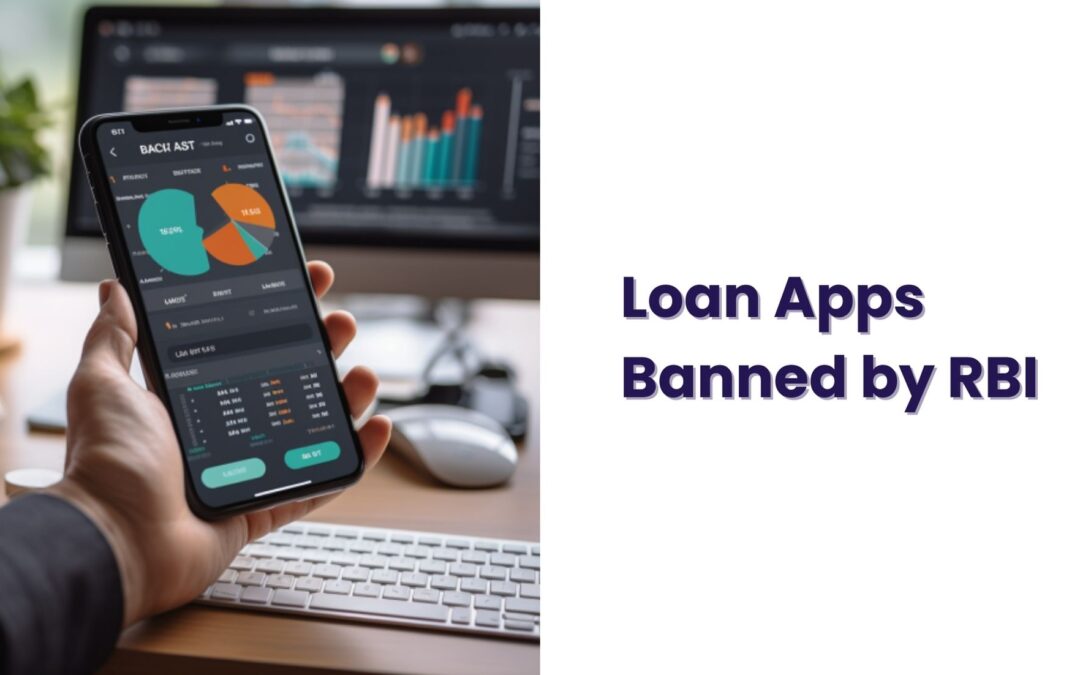Over the past few years, India witnessed an explosion in the popularity of loan apps. Designed to provide quick financial solutions, these apps lured users with promises of instant loans with minimal documentation. Their rise was meteoric, with millions of users seeking immediate financial relief.
Do you want to save money in a secure digital platform? Download and save on the Jar App now.
The Rise of Loan Apps: A Brief Overview
The allure of quick cash transformed the financial ecosystem. With just a few taps on a smartphone, users could access funds. These apps catered to a wide audience, from college students facing tuition fees to entrepreneurs requiring working capital. The convenience they offered was unparalleled.
Loans Apps Banned by RBI: A Growing Concern
However, beneath this facade of convenience lay a darker reality. As complaints mounted, stories of harassment, astronomical interest rates, and predatory lending practices came to light. This growing concern caught the attention of regulatory authorities, leading to swift action.
Understanding RBI’s Regulatory Role
The Reserve Bank of India (RBI), as India’s premier banking institution, holds the mandate to ensure financial stability and protect consumers. Recognizing the potential risks posed by unregulated loan apps, RBI initiated stringent regulatory measures.
Factors Leading to the Ban
Several factors precipitated this regulatory intervention. First, rampant illegal lending practices jeopardized consumer interests. Second, the absence of a robust framework allowed nefarious entities to exploit vulnerable users. Third, the surge in default rates posed systemic risks to the financial ecosystem.
The Impact on Borrowers
The ban had a profound impact on borrowers. Many found themselves ensnared in debt traps, grappling with exorbitant interest rates and punitive measures. The ban aimed to safeguard these vulnerable consumers, offering them a respite from relentless debt cycles.
Identifying Illegal Loan Apps
Distinguishing between legitimate and illegal loan apps became paramount. Illicit apps often operated without requisite licenses, employing aggressive tactics to lure unsuspecting users. Consumers needed to exercise caution and conduct due diligence.
Key Signs of Unauthorized Lending Platforms
Several red flags signaled unauthorized platforms. Lack of transparent terms, absence of physical addresses, and dubious customer reviews were telltale signs. Consumers should approach such platforms with extreme caution.
RBI’s Actions Against Fraudulent Apps
RBI’s response was both swift and decisive. The institution levied penalties on errant apps, forcing many to shut down operations. This crackdown sent a clear message: fraudulent activities would not be tolerated.
How Consumers Can Protect Themselves
Education emerged as the most potent weapon against predatory lending. Consumers must research apps thoroughly, scrutinize terms and conditions, and seek expert advice before engaging with any platform.
Legal Consequences for Defaulters
Defaulting on loans carried severe repercussions. Borrowers faced legal actions, tarnished credit scores, and financial hardships. Understanding one’s obligations and rights became crucial in navigating this complex landscape.
The Road Ahead: Strengthening Regulatory Mechanisms
Enhancing Collaboration with International Partners
To address the transnational nature of gambling and money laundering activities, there is a need to strengthen collaboration with international partners. Sharing intelligence, best practices, and technological solutions will enable the effective implementation of regulatory measures, mitigating risks and enhancing cybersecurity.
Empowering Consumers through Awareness Campaigns
Empowering consumers through awareness campaigns and educational initiatives is crucial to fostering a culture of responsible digital citizenship. By promoting ethical practices and encouraging vigilance against fraudulent activities, we can create a resilient and inclusive digital environment that upholds the principles of integrity, transparency, and accountability.
The ban on 232 foreign apps represents a pivotal step in addressing the escalating challenges posed by gambling and money laundering. By adopting a comprehensive and proactive approach, we can safeguard the economic interests and moral values of our society, fostering a secure, transparent, and inclusive digital ecosystem for future generations.
The Future of Digital Lending in India
Despite the ban, the future of digital lending remains promising. Innovators are now focusing on ethical, transparent solutions, fostering a culture of responsible lending and consumer protection.
Alternatives to Loan Apps Post-Ban
Traditional banking channels and peer-to-peer lending platforms offer viable alternatives. Consumers must explore these avenues cautiously, prioritizing transparency and ethical practices.
Conclusion: Moving Forward Safely
The ban on loan apps by RBI serves as a wake-up call for all stakeholders. By prioritizing consumer protection, ethical practices, and regulatory compliance, India can build a resilient, inclusive financial ecosystem.
Recommendations for Borrowers
Borrowers must prioritize due diligence, read terms meticulously, seek expert advice, and remain vigilant. Responsible borrowing and informed decision-making are crucial in navigating the complex financial landscape.
Resources and Helplines
For more information, resources, and assistance, visit RBI’s official website, consult with financial advisors, or contact local consumer helplines. Knowledge is power; arm yourself with information.
Loans Apps Banned by RBI: Frequently Asked Questions
How to Report Suspicious Loan Apps?
Report suspicious apps to RBI’s helpline or local authorities immediately. Timely intervention can prevent further harm and protect vulnerable users.
Is There Any Way to Recover Lost Money?
While recovering lost money can be challenging, legal avenues exist. Victims should consult legal experts, gather evidence, and pursue appropriate remedies.
What Are the Signs of a Legitimate Loan App?
Legitimate apps exhibit transparent terms, clear repayment structures, positive customer reviews, and a physical presence. Users should verify credentials and exercise due diligence.
How Will This Impact the Digital Economy?
The ban aims to foster a sustainable digital economy by curbing illicit activities, promoting trust, and encouraging ethical practices. It underscores the need for regulatory vigilance and consumer education.
What Are Other Countries Doing About This?
Globally, regulators are tightening oversight on fintech platforms, adopting stringent measures to protect consumers and maintain financial stability. Collaboration and knowledge-sharing are essential in this global fight against fraud.

